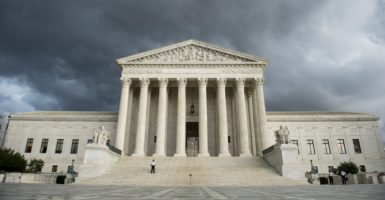Robbery is a crime in every state, and no one argues that it should not be. But should any local robbery also be a federal crime? Although the Supreme Court’s opinion in Taylor v. United States says that now it is, significant constitutional and policy considerations beg to differ.
Taylor v. United States
David Taylor was involved in two gang-related home robberies in the Roanoke, Virginia, area. Although he robbed two marijuana dealers intent on stealing their drugs and drug proceeds, he wound up with only two cell phones, $40 in cash, some jewelry, and one marijuana cigarette. He was prosecuted and convicted under the Hobbs Act, which proscribes “robbery or extortion” that “obstructs, delays, or affects” any “commerce over which the United States has jurisdiction.”
The Supreme Court affirmed that conviction based on its prior holding in Gonzales v. Raich (2005): The federal government has jurisdiction over marijuana, the marijuana trade, and its intrastate aspects.
Gonzalez came as one in a long series of cases, dating back to 1942, which stretched the federal government’s constitutional authority to “regulate commerce … among the several states” to reach any conduct that might “in the aggregate” “substantially affect” interstate commerce.
According to Justice Samuel Alito’s opinion of the court, Taylor’s robbery is a federal rather than a state crime because he targeted a thing, marijuana, which is federally regulated by virtue of its connection to interstate commerce.
It therefore follows as a simple matter of logic that a robber who affects or attempts to affect even the intrastate sale of marijuana grown within the State affects or attempts to affect commerce over which the United States has jurisdiction.
Justice Thomas Dissents, Constitutional Concerns
As Justice Clarence Thomas noted in his lone dissent, because virtually everything is federally regulated, the federal government might now “regulate any robbery” (“as a simple matter of logic”). In Thomas’s view, permitting the federal government to police “simple home robbery” would “encroach on States’ traditional police powers to define the criminal law and to protect … their citizens,” and otherwise “subvert basic principles of federalism and dual sovereignty.” For Justice Thomas, the Hobbs Act, properly interpreted, would touch upon local robbery “only when that particular robbery ‘obstructs, delays, or affects’ interstate commerce.”
Former Attorney General Edwin Meese III has detailed a number of excellent reasons (in addition to the ones found in the Constitution) “for keeping the federal government out of local law enforcement.”
Policy Concerns
Federal involvement in local law enforcement is unnecessary because, like federal carjacking and arson laws, robbery and extortion are crimes in every state and those state laws are routinely enforced. Moreover, federal involvement comes at a steep price. Overworked federal judges, far outnumbered by their state counterparts, need not take up the dockets of local criminal trial judges. Likewise, agents and lawyers in the Federal Bureau of Investigation and the Department of Justice have more than enough work without the addition of every local robbery case in the country.
The involvement of federal law enforcement agencies in local crimes from around the country will result in selective prosecution and disparate enforcement and punishment.
Meese warns:
Federal officials determine, usually on the basis of political factors, whether they will get involved in a case. The fact that the laws are on the books allows them to do so at whatever whim they may decide to get involved.
Making local crime a federal issue “shifts accountability” and “confuses the citizens as to who is in charge. They don’t know to talk to their local chief of police, the local sheriff, their local legislator, or to write their congressman when Congress keeps proclaiming that it is solving the crime problem or the president says he is the one who is putting 100,000 police officers on the street.
Taylor Shows the Hobbs Act Must Change
The Hobbs Act punishes conduct that was already criminal in every state. Congress had created the Hobbs Act regardless of its superfluity in order to end a New York teamsters union’s highway robbery spree.
Congress could take the court’s opinion in Taylor as a sign that the Hobbs Act could be amended before any of the potentially harmful constitutional and policy consequences are realized.
To both keep the act on the books and keep federal law enforcement’s workload manageable, Congress could impose a minimum amount requirement for federal prosecution similar to those found in the federal theft statutes. Regardless of congressional action, the attorney general could direct the U.S. attorneys to stop prosecuting small stakes crimes. After all, as Justice Ruth Bader Ginsburg observed, “It’s very odd that this is a Federal case. I mean, they—in fact, they took, what, a couple of cell phones, $40?” The federal government has bigger fish to fry.




























